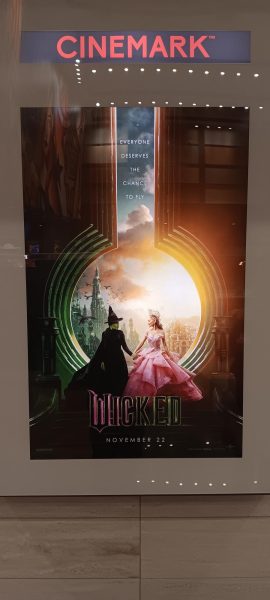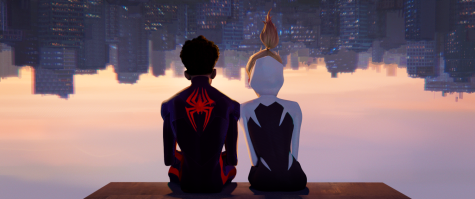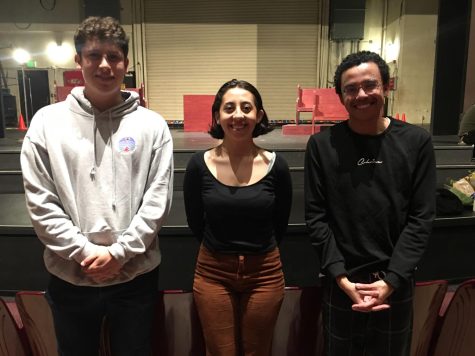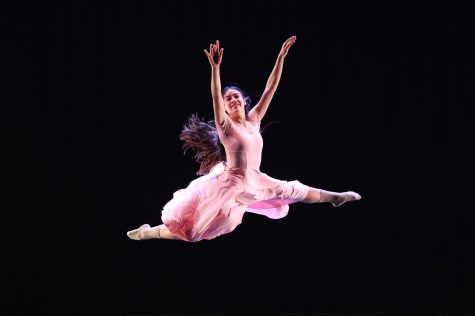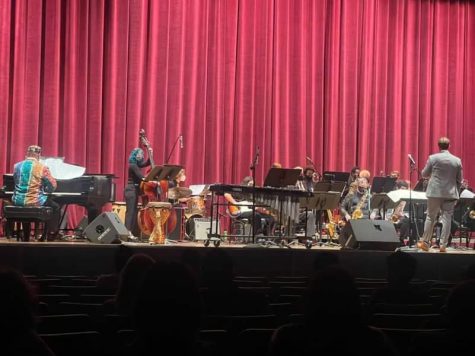‘Psycho Beach Party’ explores adolescence, sexuality, multiple identities themes through humor
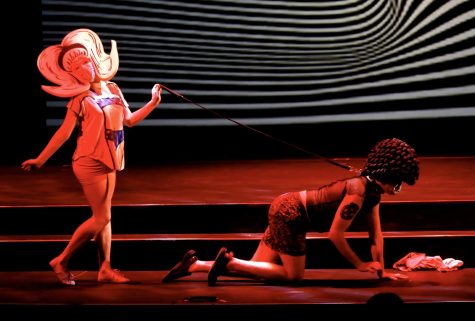
Inciting boisterous laughter from a masked crowd, the comedy play “Psycho Beach Party” was a fascinating performance that demonstrated themes of adolescence, sexuality and multiple identities in its 90-minute runtime.
According to the director’s notes in the program booklet by ECC Theater Department lecturer Matthew Singletary, the show intended to provide joy to its socially distanced audience as a break from the adversities we face during COVID-19 as it is the first in-person performance performed at ECC after a year, and it certainly achieved this goal.
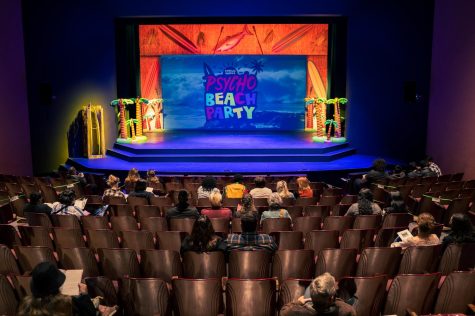
“Psycho Beach Party” is a story set in the 1960s that follows the story of Chicklet, played by Olivia Curry, a 16-year-old bubbly girl who has a separate contrasting identity with a more mature and raunchy personality.
The other characters follow Chicklet in her desire to become a top surfer as they uncover the truth about her identity disorder, which changes her relationships with friends, her mother and even a potential lover.
Despite having to wear masks that cover half of their faces, the actors still excellently delivered most of their lines with emotion, enunciation, clarity and managed to avoid mumbling.
Curry’s masterful acting allowed her to show a clear distinction between the identities in one character — for Chicklet, her voice is high pitched, faster and she had more carefree movements, while her impure side spoke in slower, more suggestive tones and she stood her ground with both confidence and dominance.
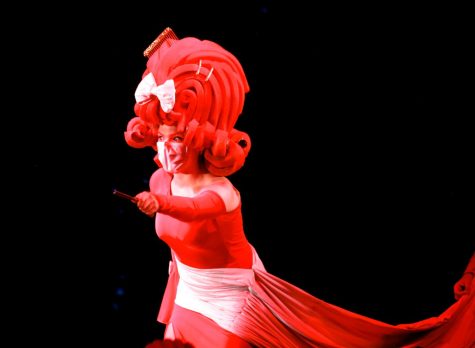
Aside from Curry’s great performance, the theater would shine a bright red spotlight whenever her raunchy personality is present, making it a very easy and creative way for the audience to stay attentive and clearly understand who is talking.
The stage crew did an amazing job on managing the lights, set design, sounds and other technical aspects despite this being the first in-person theater show after a year.
The entire performance went smoothly. There were no technical issues, nor were there any mistimed music or lighting cues that helped to keep the audience immersed.
Because the show is not a musical, one of the only times they used background music was to fill the silence of scenes that focused on movement and had less talking, such as the part where Kanaka, played by Cody Ryan Miller, was teaching Chicklet how to surf.
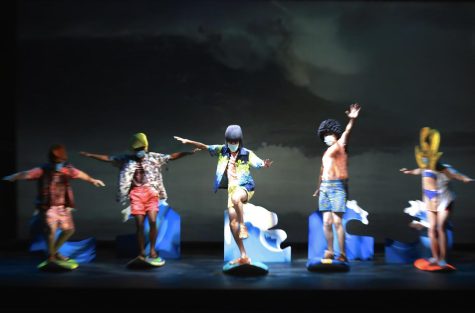
The actors’ costumes were attention-grabbing and very relevant to the theme of “Psycho Beach Party.” In most of the scenes, the women wore shirts with bikinis printed on them and the men wore shirts with hilariously hairy chests on them which I believe is a great call for the comfortability of the actors.
They also adorned the stage with inflatable palm trees, beach towels and surfboards. The big screen behind the stage always showcased some sort of shore or tiki backdrop that truly set the scene.
As the show’s theme surrounded sexuality and the script contained quite a lot of sexual innuendo and imagery, one of the most notable uses of the big screen was when the character Star-Cat, played by Joseph Yanez, explained to Chicklet what he and his girlfriend Marvel Ann, played by Janae Morris, do when they’re alone.
As he tells the story, the big screen behind them showed a scene of two Barbie dolls enacting risque scenes between a couple which rightfully garnered the most boisterous waves of laughter throughout the entire show.
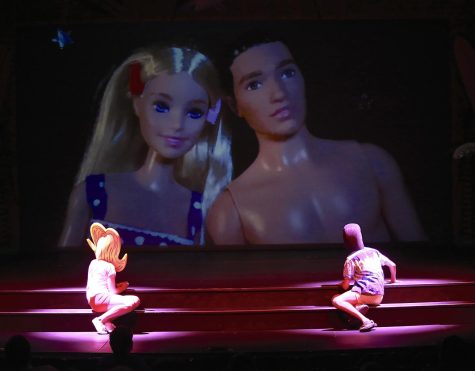
They explored themes of adolescence in the same uncomfortable, hysterical way, such as Chicklet’s mom, played by Chioma Onyedumekw, who did a wonderful job of representing a strict mother who wanted to keep Chicklet’s impure identity from hanging out with boys in a series of chase scenes.
Even though it was a shame that a few punchlines didn’t land as well as they were supposed to due to a few stutters or unclear words due to the protective masks, the use of these ridiculous visuals and thrilling interactions between the characters made up for it.
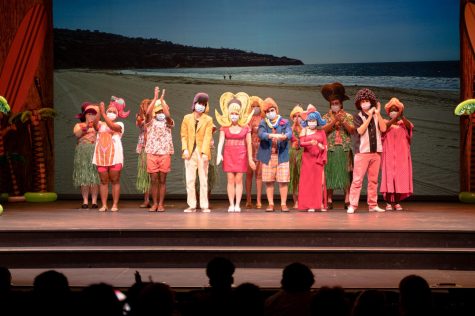
“Psycho Beach Party” overall remained true to the vision in Director Singletary’s director’s note of making the show a way for the El Camino College community to celebrate humor and absurdism despite the world’s current circumstances.
Seeing this play was an unforgettable feel-good experience that marks a great return for in-person performances.



